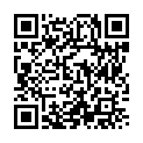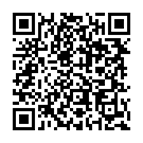What vaccines are available to prevent meningococcal meningitis?
Vaccines protect against some, but not all, meningitis infections. Nova Scotia’s publicly funded vaccine program currently provides meningococcal C vaccine at 12 months of age and quadrivalent meningococcal A, C, Y, W vaccine as part of the Grade 7 school immunization program.
The meningococcal B vaccine is offered for free to certain youth aged 25 years and under who are moving into a large group living setting with other young adults for the first time, like a university dorm or residence. More information is available here.
How do I know if I was immunized against meningococcal disease?
To access you/your child’s vaccination records, visit https://vaxrecordns.nshealth.ca/ or go to the "Records" section of YourHealthNS.
Nova Scotia Public Health began offering vaccination against meningitis C to Grade 4 students through the school program in 2005, then switched to Grade 7 in 2007 (for meningococcal A, C, Y, W). If you are from another province, you can check their public health website for recommended immunization schedules.
What is meningitis?
Meningitis is an inflammation (swelling) of the lining of the brain and spinal cord. Meningitis is most commonly caused by a virus or bacteria, but it can also be caused by injuries, cancer, or other types of infection.
Viral meningitis may be caused by a wide variety of viruses. Antibiotics do not work against viruses and are not beneficial for viral meningitis.
Meningococcal disease is a very rare but serious bacterial infection caused by the bacteria Neisseria meningitidis. There are different strains of this bacteria, including A, B, C, W, and Y. These bacteria can sometimes be carried in the nose without causing symptoms or illness. Occasionally, a healthy person will become ill when bacteria becomes invasive and enters the bloodstream and can cause serious illness, like inflammation of the lining of the brain and spinal cord. It can also cause death. Bacterial meningitis requires immediate treatment with antibiotics.
How does meningococcal meningitis spread?
The bacteria that can cause meningitis are spread person to person by direct secretions (saliva or spit) from the nose and mouth through activities such as: kissing, sharing food, drinks, water bottles, toothbrushes, eating utensils, cigarettes and other smoking products and devices.
This disease is not contracted by sitting next to someone, taking a class with someone, or walking in the halls with someone who is sick with the illness.
This disease does not spread through the air or via casual contact, so risk to the general public is low.
What symptoms should I watch for?
The most common symptoms of meningitis include:
-
Sudden onset of fever
-
Skin rash that spreads rapidly and begins as reddish/purplish spots that do not disappear when pressed
-
Intense headache
-
Stiff neck
-
Nausea and/or vomiting
-
Sensitivity to light
-
A change in the level of alertness
Symptoms can become serious very quickly. If you are experiencing symptoms, seek medical attention immediately. Anyone with severe symptoms (listed above) should go to an emergency department or call 911.
Symptoms in babies
Babies may not have the classic symptoms listed above. If they do, it may be difficult to notice the symptoms.
Instead, babies may:
- Appear to be slow or inactive
- Have a change in level of alertness
- Be irritable or fussy
- Feed poorly
- Have abnormal reflexes
- Vomit
What is the treatment?
Bacterial meningococcal meningitis can be treated with antibiotics. Early diagnosis and treatment are important.
Should I take antibiotics as a precaution?
No. Only people in close contact with a meningococcal meningitis patient require antibiotics as a precautionary treatment.
Who is considered a close contact?
In situations like this, a close contact is defined as:
- Household contacts of the case.
- Persons who share sleeping arrangements with the case.
- Persons who have direct contamination of their nose or mouth with the oral/nasal secretions of the case (e.g., kissing on the mouth, shared cigarettes, shared drinking bottles, etc.).
- Healthcare workers (HCWs) who have had intensive unprotected contact (without wearing a mask) with the infected individual (e.g., intubating, resuscitating or closely examining the oropharynx).
What are the preventive measures to avoid infectious diseases?
For many infectious diseases, they are spread by direct secretions from the nose and mouth through activities such as kissing, and sharing food, drinks, water bottles, toothbrushes, eating utensils or cigarettes/vapes. Avoiding these activities helps prevent the spread of the disease, as well as good hand washing hygiene and coughing/sneezing into your sleeve.



